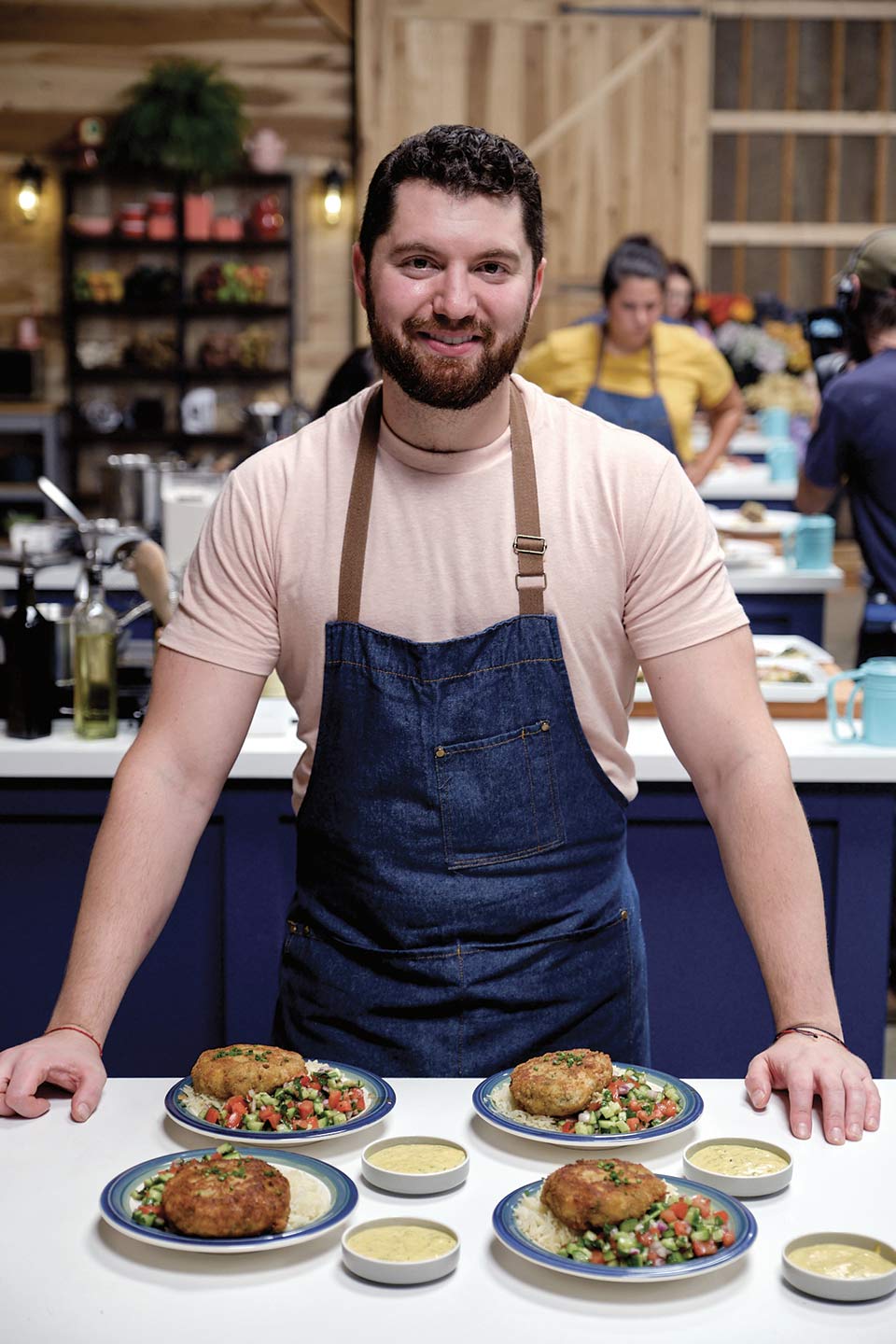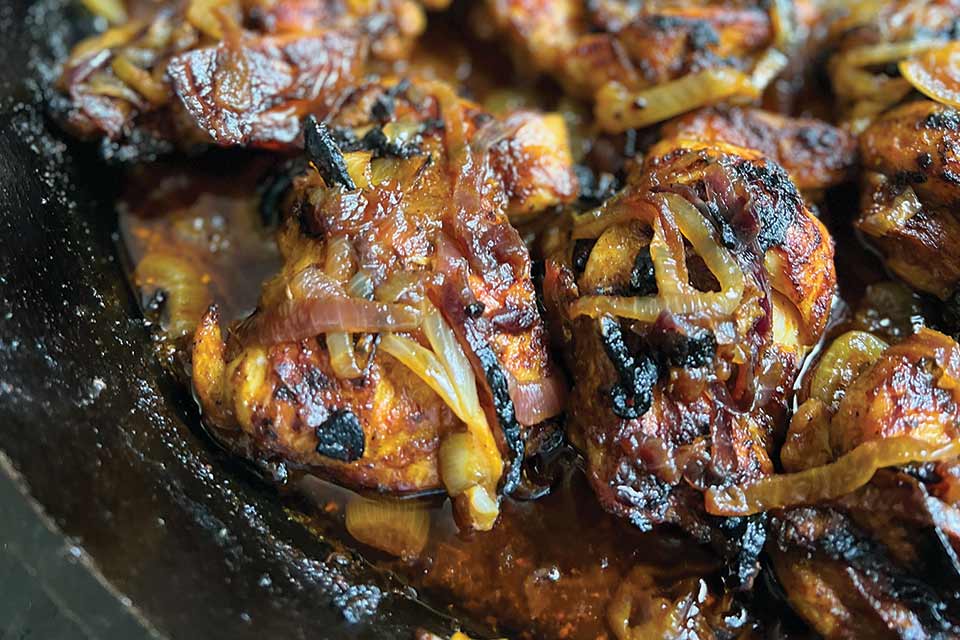The Sweet Smell of Success
By Lizzy Briskin

Brad Mahlof ’11 (Photo courtesy of PBS)
The 60-minute timer was ticking as Brad Mahlof ’11 wrestled with what he called “a tough rock of a dough” on national television, under a panel of judges’ watchful gaze.
It was Season 2, Episode 2, of “The Great American Recipe,” a PBS reality competition series showcasing nine home cooks preparing multicultural dishes. The eight-episode season, which aired last summer, pitted the contestants against one another and the clock for a chance to have one of their recipes featured on the cover of the show’s eponymous cookbook.
A flustered Mahlof, halfway through the second culinary challenge of the day, was making nukides, a gnocchi-like pasta from his Libyan Jewish heritage. The judges appreciated Mahlof’s effort at homemade dough (no other contestant attempted pasta from scratch), and offered some advice: Toss the batch, and start over.
By the end of Episode 8, Mahlof had outcooked his competition to win the season. A photo of his take on mafrum, a meat-stuffed vegetable dish known as the crown jewel of Libyan Jewish cuisine, graces the Season 2 cookbook’s cover.
Unlike the high-stakes, cutthroat vibe of “Top Chef,” “The Great American Recipe” is larded with encouragement and constructive criticism, served up with a gentle pat on the back. The chefs even welcome judges to their stations midcook to offer a scoop of mashed potatoes or a whiff of searing lamb kebabs in exchange for culinary advice.
A New York City real-estate developer by day and a food blogger by night, Mahlof wasn’t planning to pursue a career in food or reality TV (he initially thought the casting director’s Instagram direct messages were a scam). But he quickly realized the show offered a unique opportunity to celebrate the foods and flavors of his Sephardic and Jewish ancestry.
“There are really no Jews left in Libya,” he says, “and the thing that keeps me tied to my heritage is food and the history of our recipes.” He decided he wanted to showcase his culture by introducing the dishes he learned from his family to a wider audience.

Oven-Broiled Chicken Thighs
This is one of Brad Mahlof’s favorite under-30-minutes weeknight meals.
Try his recipeBonding with his fellow contestants was a highlight. “We’re from such different places, but we share a love for food,” he says, comparing the experience to “freshman year of college, when you’re meeting peers and there’s still an element of competition, but you’re there to support each other.”
Mahlof got lots of kitchen time as an undergraduate. On Shabbat evenings, 20 to 30 Brandeis classmates would gather at his Charlesbank Garden apartment, noshing on the Libyan Jewish dishes he’d make.
“I’ve always cooked and loved to entertain,” Mahlof says, so much so that he would cook for two or three days straight before Shabbat, even if it meant “taking time away from class.” These festive gatherings were reminiscent of the holiday meals of his childhood, when his grandmother would prepare an elaborate spread to feed her 16 children, their spouses, and the many grandchildren.
It is no surprise, then, that the sweetest moment of the season finale came when Mahlof nailed his dessert, a fig upside-down cake, topped with whipped cream and slivered almonds. He did it with the help of his special guest and sous chef, Gerilyn — or, as he’s always called his mother, Mama-Lyn.
Lizzy Briskin is a food writer and recipe developer in New York City.